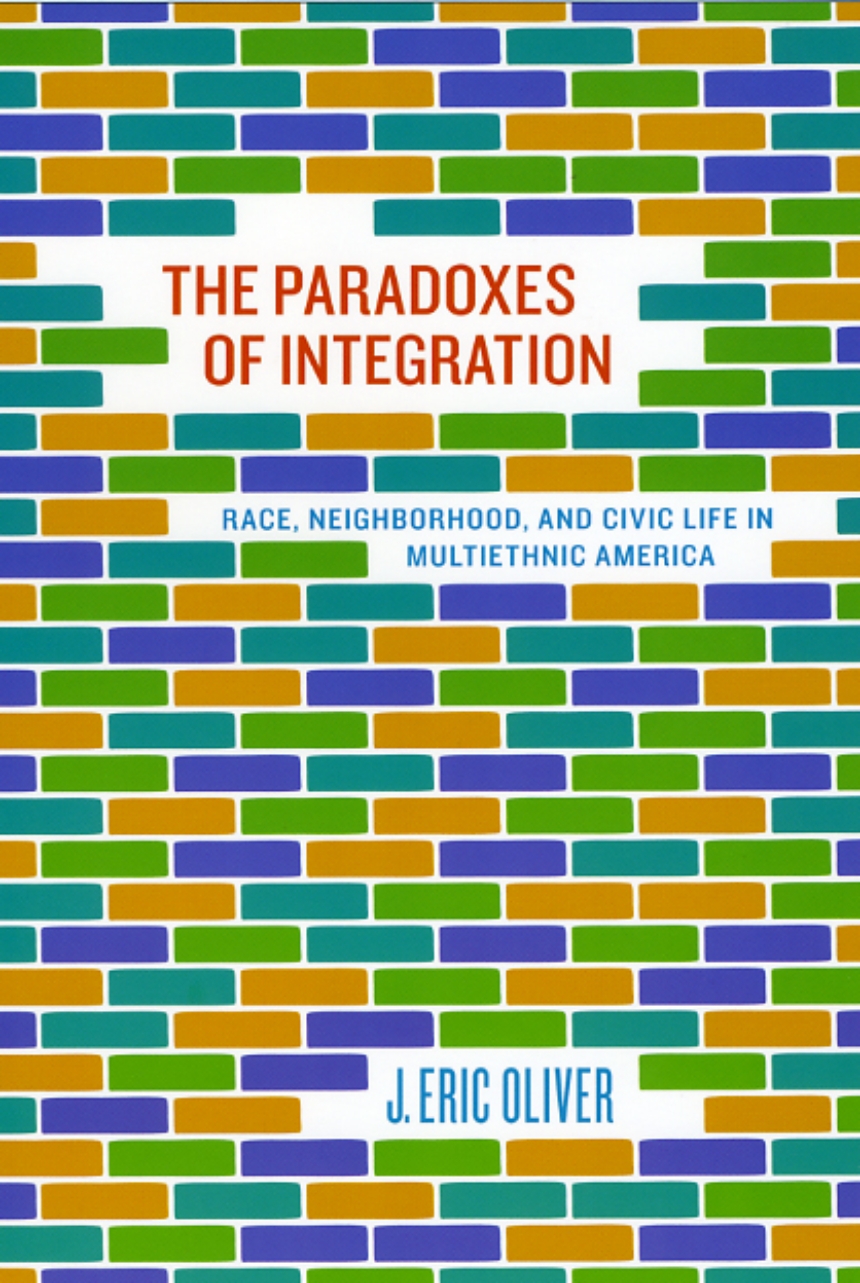The Paradoxes of Integration
Race, Neighborhood, and Civic Life in Multiethnic America
The Paradoxes of Integration
Race, Neighborhood, and Civic Life in Multiethnic America
The United States is rapidly changing from a country monochromatically divided between black and white into a multiethnic society. The Paradoxes of Integration helps us to understand America’s racial future by revealing the complex relationships among integration, racial attitudes, and neighborhood life.
J. Eric Oliver demonstrates that the effects of integration differ tremendously, depending on which geographical level one is examining. Living among people of other races in a larger metropolitan area corresponds with greater racial intolerance, particularly for America’s white majority. But when whites, blacks, Latinos, and Asian Americans actually live in integrated neighborhoods, they feel less racial resentment. Paradoxically, this racial tolerance is usually also accompanied by feeling less connected to their community; it is no longer "theirs." Basing its findings on our most advanced means of gauging the impact of social environments on racial attitudes, The Paradoxes of Integration sensitively explores the benefits and at times, heavily borne, costs of integration.
See the web appendix referenced in the book.
216 pages | 43 line drawings, 2 maps | 6 x 9 | © 2010
Political Science: American Government and Politics, Race and Politics
Sociology: Race, Ethnic, and Minority Relations, Social Change, Social Movements, Political Sociology
Reviews
Table of Contents
Acknowledgments
Introduction: Place and the Future of American Race Relations
Chapter 1. Why Place Is So Important for Race
Chapter 2. Racial Attitudes among Whites, Blacks, Latinos, and Asian Americans
Chapter 3. Neighborhood- and Metropolitan-Level Differences in Racial Attitudes
Chapter 4. Geographic Self-Sorting and Racial Attitudes
Chapter 5. Interracial Civic and Social Contact in Multiethnic America
Chapter 6. The Civic and Social Paradoxes of Neighborhood Racial Integration
Chapter 7. On Segregation and Multiculturalism
Appendix A: Data Sources
Notes
References
Index
